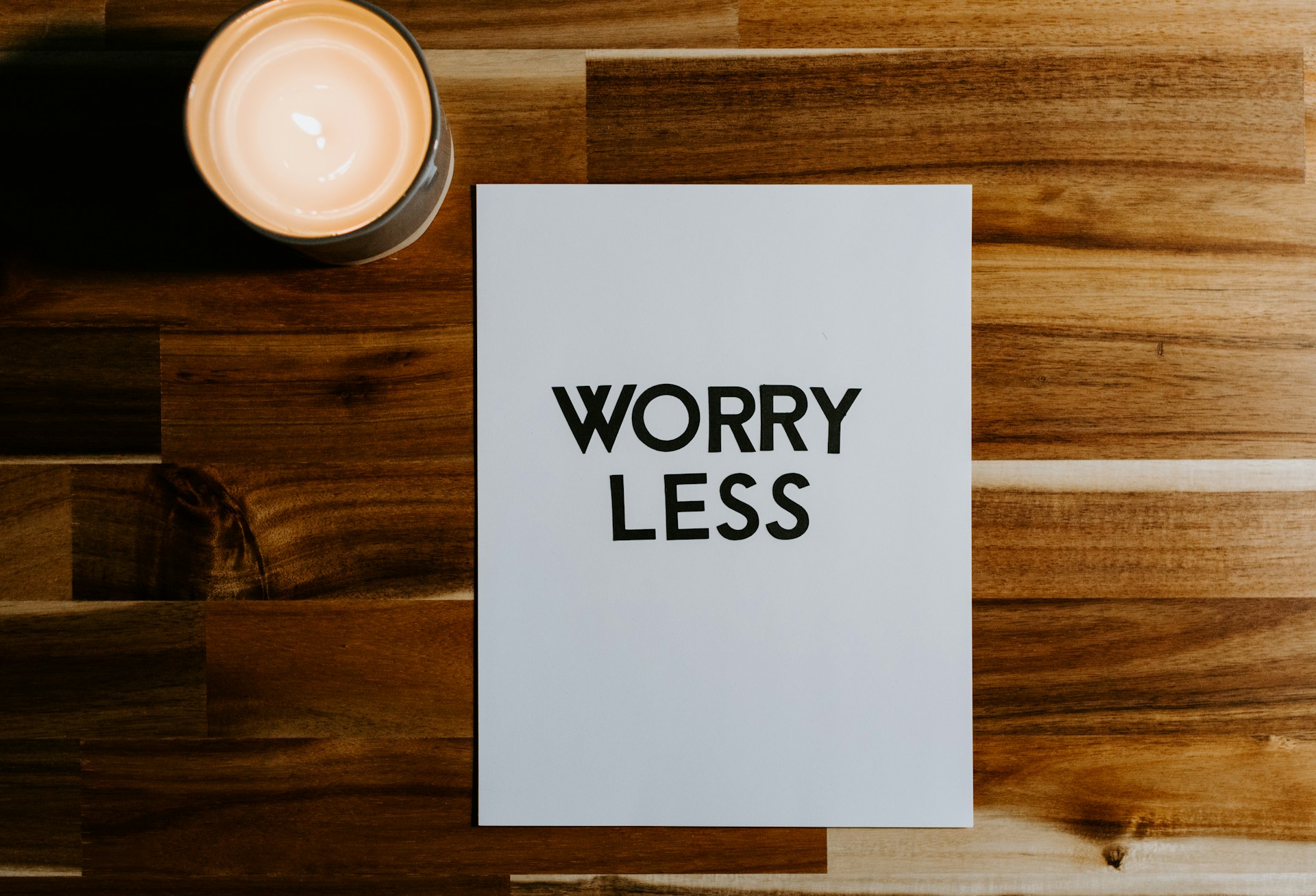Nutrition
Decode Your Groceries: A-Z Guide to Healthier Food Choices

Grocery shopping can sometimes feel like navigating a maze, especially when it comes to understanding the ingredients in the products we consume. With the rise of health buzzwords like “adaptogens” and a myriad of antioxidants and protein sources, it can be challenging to decipher what’s beneficial for our bodies. To make your grocery shopping experience less complicated, we’ve compiled an A-Z guide of ingredients to help you make informed, healthy food choices.
This guide is based on extensive research, consultations with our medical team, and feedback from our readers about the lesser-known ingredients they wish to understand better. We’ve also noted the evidence behind each ingredient’s health benefits, whether confirmed, mixed, emerging, or limited in scope. Additionally, we’ve highlighted when a specific additive is recognized as safe (GRAS) by the United States Food and Drug Administration (FDA).
For instance, some fruits have been used for centuries by Indigenous peoples to treat various ailments. They are rich in vitamin C, antioxidants, and fiber. However, larger-scale studies are required to support claims that these fruits can help treat colds and the flu.
Edible gold is primarily used for aesthetic purposes, lightly brushed over desserts to give them a golden look. However, it’s important to note that people with a gold allergy may have a reaction when consuming this ingredient.
Leafy greens like endive are packed with antioxidants that may lower the growth of cancer cells. However, more research on human subjects is needed. Similarly, certain types of mushrooms are rich in fiber and B vitamins. Some research suggests these mushrooms can reduce the growth and spread of cancer cells, improve heart and brain health, and bolster immunity. However, more research is needed, especially on human participants.
Fennel, an herb and medicinal plant, is nutritious and contains vitamin C, calcium, magnesium, potassium, and manganese, some of which are known to support heart health. However, research about its ability to curb appetite is mixed, and purported anti-cancer benefits have not been observed in humans.
Ferrous gluconate is commonly prescribed in supplement form to aid in anemia treatment, but you may also see it on an ingredient list for cereals, infant food, and dairy products. Fish oil, made when fat or oil is extracted from fish tissue, may increase heart and eye health, reduce inflammation, and improve mental and cognitive health outcomes.
Freekeh, made from green durum wheat, is a whole grain. Some research indicates that it can assist digestion, heart health, and weight management. However, it contains gluten, which some individuals may need to avoid.
Chiles, like jalapenos, contain capsaicin, a bioactive plant that some research indicates might help relieve pain and help with weight loss. However, chili might make irritable bowel syndrome worse temporarily.
Fugu, a Japanese delicacy served as sashimi and nabemono, or Japanese hot pot, can be lethal if not prepared carefully to remove the tetrodotoxin, a venom found in eel and octopus that’s toxic to humans.
Gluten refers to a family of storage proteins with health benefits that naturally occur in certain grains like wheat, barley, and rye. Gluten-free diets have increased in popularity in recent years, and people with celiac disease, non-celiac gluten sensitivity, and other conditions are advised to avoid gluten entirely. Others should speak with a provider before cutting gluten.
These small, tart red berries are commonly sold powdered or dried and added to juices. More research is needed to confirm benefits, including better immune function and eye health.
Guar gum is an additive commonly found in processed foods like salad dressing and yogurt to thicken and bind them. It is low-calorie and high in soluble fiber, so it may help with blood sugar and cholesterol control. The FDA considers it safe in specific amounts, but too much can trigger digestive issues like bloat and gas.
Gram flour, also known as chickpea or besan flour, has been a popular ingredient in Indian recipes for hundreds of years. It’s made with chickpeas and has a mild and nutty taste. It contains antioxidants that can help combat free radical damage. When used in processed food, it may lower the amount of a potential carcinogen known as acrylamide. Chickpea flour has fewer calories and less of an impact on blood sugar than wheat flour, plus it may be more filling.
Hemp seeds are the small, whitish seeds of the hemp plant. They only have small traces of THC, the compound in cannabis that triggers a “high.” They’re loaded with healthy fats, protein, vitamin E, magnesium, calcium, iron, and zinc and can be pressed into hemp oil. They may help with heart disease risk, skin disorder treatment, and digestion and serve as a good source of plant-based protein.
High-fructose corn syrup is an artificial sweetener. It’s been linked to conditions including obesity, diabetes, and heart disease. Scientists and healthcare providers typically recommend limiting or avoiding this sweetener.
Hops are female flowers from the hop plant Humulus lupulus and are most commonly found in beer. Research indicates hops may have a sedative effect. They may also help with menopause symptom relief and obesity, but more human-centered data is needed.
Inulin is found naturally in foods like asparagus, leeks, bananas, onions, and wheat. It’s a type of prebiotic fiber that may help reduce blood pressure, and can aid in blood sugar management. It’s generally considered safe. People, particularly those who are pregnant, should discuss taking supplements with their providers.
Quinoa, a gluten-free seed often mistaken for a grain, was hailed as a sacred food by the Inca people hundreds of years ago. Today, it’s lauded for its nutrient contents like fiber, protein, folate, and magnesium, making it useful for weight management and gut health. It boasts flavonoids, including quercetin and kaempferol, which can have anti-inflammatory properties.
Turmeric is a spice used in curry that gives it its yellow color. It’s also become a popular dietary supplement. It contains curcumin, a substance with anti-inflammatory and antioxidant properties. Most studies used turmeric extracts with large amounts of curcumin, and more research is needed.
This guide is by no means exhaustive. For a more comprehensive list of food additives, we recommend visiting the FDA’s website. Armed with this knowledge, you can confidently navigate the grocery store aisles and make informed decisions about the food you consume.
Let us know what you think, please share your thoughts in the comments below.

Nutrition
Are You Eating Too Much Fiber? Doctors Reveal 5 Warning Signs

Incorporating fiber-rich foods into your diet is essential for maintaining good health. Fiber supports gastrointestinal health, regulates blood sugar levels, and lowers the risk of cardiovascular diseases. However, it’s possible to consume too much fiber, leading to several unwanted side effects. Here are five signs that you might be overdoing it with fiber, according to doctors.
Bloating and Gas
Bloating and gas are among the most common issues associated with excessive fiber intake.
“As fiber is fermented by the gut microbiota, it releases gas and other compounds, which can be bothersome,” explains Jennie Stanford, MD, an obesity medicine physician.
Different types of fiber may affect people differently. Generally, soluble fiber (found in oats) is better tolerated than insoluble fiber (found in vegetables).
Abdominal Pain and Cramping
Too much fiber can lead to abdominal pain and cramping. This happens because the digestive system struggles to process large amounts of fiber.
“While fiber is typically recommended for regular bowel movements, excessive consumption may have the opposite effect, causing constipation or diarrhea,” says Melissa Snover, RD, a registered nutritionist.
Diarrhea or Constipation
Another gastrointestinal symptom to be aware of is either diarrhea or constipation.
“Diarrhea may occur with a high fiber intake, usually as a result of drawing more water into the stool and it moving through the intestines more quickly. In other people, constipation may occur as a result of the bulk that fiber adds to stool,” Stanford explains.
Nutritional Deficiencies
Eating too much fiber can interfere with your body’s ability to absorb essential nutrients, leading to deficiencies.
“Fiber can bind to essential nutrients like calcium, iron, and zinc, preventing them from being absorbed by your body,” Snover says.
This issue can also contribute to dehydration, making adequate hydration even more critical.
Dehydration
Fiber absorbs water, which means that a high-fiber diet requires you to drink more fluids. Without proper hydration, you may experience dehydration.
“This ensures you get all the benefits of fiber without the downsides that can be caused by excessive consumption,” Snover advises.
Pay attention to these signs to ensure you’re not overloading on fiber. While fiber is vital for good health, balance is key to avoiding these uncomfortable and potentially harmful side effects.
Let us know what you think, please share your thoughts in the comments below.
Nutrition
Doctors Recommend These 9 Supplements to Help Ease Anxiety

Anxiety can be a challenging condition to manage, and while traditional treatments like medication and therapy are commonly recommended, many people are exploring supplements as a complementary option. It’s essential to consult with your healthcare provider before starting any new supplement regimen. Here are nine supplements that doctors say may help soothe anxiety symptoms.
Vitamin D
A deficiency in vitamin D has been linked to increased symptoms of anxiety and depression. Dr. Indhira Ghyssaert emphasizes the importance of this vitamin for maintaining energy levels.
“Of course, the sun is the best source of vitamin D. However, we recommend adults take a supplement to make up for the loss during winter months or in colder, darker climates,” she tells Best Life.
Consider a dose of 2000 IU, but consult your doctor for personalized advice.
Magnesium
Magnesium plays a crucial role in brain health by modulating the brain’s stress response. According to the Cleveland Clinic, it helps lower cortisol levels and balance neurotransmitters responsible for the “fight or flight” response.
“Magnesium is essential for brain health,” says Ghyssaert.
She recommends starting with 100 milligrams before bedtime and gradually increasing to 250 milligrams.
GABA
Gamma-aminobutyric acid (GABA) is a neurotransmitter that helps inhibit excessive neuronal activity, promoting calmness and reducing anxiety.
“I recommend starting with a dosage of 250 milligrams daily and working up to 750 milligrams,” Ghyssaert advises.
However, GABA is not suitable for everyone, especially those with depression or on blood pressure-lowering medications.
Vitamin B12
Vitamin B12 is essential for brain health and neural protection. Janine Bowring, ND, highlights its importance.
“From a whole food source, it has been found that vitamin B12 helps with your neural protection for your myelin. Myelin is the coating on the outside of your nerves, and a deficiency has been linked to depression,” she explained in a recent TikTok post.
Valerian Root
Valerian root is often used to improve sleep quality and reduce anxiety.
“Valerian root increases GABA levels in the brain slowly and helps to reduce anxiety and improve sleep quality,” says Ghyssaert.
She recommends starting with 300 milligrams before bedtime and working up to 600 milligrams. Avoid if you are pregnant, breastfeeding, or have liver conditions.
Creatine
Commonly known for its muscle-building benefits, creatine can also help ease anxiety symptoms. Jenna Stangland, RD, explains its impact on brain health.
“There is a relationship between creatine metabolism in the brain and depression. When there are smaller amounts of white matter creatine and phosphocreatine in the brain, more severe depressive episodes occur,” she tells Best Life.
Daily creatine supplementation can enhance brain energy levels and positively impact mood, memory, cognition, and emotion.
Fish Oil
Rich in Omega-3 fatty acids, fish oil can be beneficial for reducing anxiety. A 2018 meta-analysis published in JAMA Network Open reviewed 19 studies and found that 2,000 milligrams of Omega-3 fatty acids per day significantly reduced anxiety symptoms.
Ashwagandha
Ashwagandha is an adaptogen that helps the body manage stress. It has been shown to reduce cortisol levels and improve symptoms of anxiety and depression. Start with a lower dose and consult your doctor for the best regimen.
Lavender
Lavender supplements, often in the form of capsules or essential oils, can have calming effects. Studies have shown that lavender can reduce anxiety levels and improve sleep quality. It’s generally safe but should be used under the guidance of a healthcare provider.
These nine supplements offer a range of options for those looking to manage anxiety naturally. Always consult with your healthcare provider to determine the best course of action for your specific needs.
Let us know what you think, please share your thoughts in the comments below.
Nutrition
Doctors Reveal 7 Sneaky Signs You Might Be Overdoing Salt

Monitoring your sodium intake is crucial for maintaining optimal health, especially as we age. The American Heart Association (AHA) suggests limiting sodium intake to no more than 2,300 mg per day, with an ideal target of 1,500 mg. Yet, many Americans consume about 3,500 mg daily. Excessive sodium can lead to various health complications, but recognizing the signs can help you take action. Here are seven subtle signs that you might be consuming too much sodium, according to medical experts.
Frequent Urination
One of the most common signs of high sodium intake is frequent urination. Dr. Raj Dasgupta explains that your kidneys work overtime to eliminate the excess salt, resulting in more regular trips to the bathroom.
Excessive Thirst
Another indicator of high sodium consumption is constant thirst. This is your body’s way of signaling the need to balance out the elevated sodium levels.
“Excess sodium causes the body to crave more water to balance the sodium levels,” says Meaghan Greenwood, RD, MS.
Swelling and Bloating
Swelling or bloating can occur as your body tries to manage the sodium and fluid balance. Dr. Dasgupta notes that these symptoms can be direct results of eating too much salt.
Headaches
High sodium intake has been linked to more frequent and intense headaches. Dr. Dasgupta suggests that reducing sodium in your diet could help alleviate these symptoms.
Raised Blood Pressure
An increase in blood pressure is a significant sign of consuming too much sodium. Dr. Jennie Stanford explains that sodium regulates fluid balance, leading to water retention.
“As more water is retained, this can lead to increased blood volume and arterial stress, which can increase blood pressure,” she says.
Prolonged hypertension can harm your cardiovascular system, elevating risks for heart disease, heart attack, stroke, and kidney disease.
Disturbed Sleep Patterns
Changes in sleep habits could be another subtle sign. Dr. Dasgupta points out that high sodium intake can disturb your sleep, reducing REM sleep and increasing wakefulness.
“Salt intake and its effects on sleep have been studied since the 1980s,” notes Jaclyn Leong, DO. She suggests that difficulty sleeping might indicate high sodium levels.
Shortness of Breath
In extreme cases, consuming too much sodium can lead to shortness of breath. According to Greenwood, excessive fluid retention forces the heart to work harder to pump the increased fluid through the body. This serious symptom necessitates immediate medical attention.
Recognizing these signs can help you manage your sodium intake effectively. By making dietary adjustments like reducing processed foods and opting for fresh or frozen produce, you can maintain better health and avoid the pitfalls of excessive sodium. Stay mindful of these subtle cues to keep your wellness in check.
Let us know what you think, please share your thoughts in the comments below.
-

 Health4 months ago
Health4 months ago17-Second Neuropathy Solution
-

 Health11 months ago
Health11 months agoPreventing Falls and Injuries for Seniors
-

 Nutrition8 months ago
Nutrition8 months agoThe Aging Secret of Vitamin D Unveiled
-

 Health3 months ago
Health3 months agoOncologist Reveals Top 5 Cancer Prevention Tips You Shouldn’t Ignore
-

 Nutrition12 months ago
Nutrition12 months ago5 AMAZING Dinner Recipes That Are Also HEALTHY
-

 Lifestyle4 months ago
Lifestyle4 months agoSleep Soundly with These 11 Expert-Approved Bedtime Routines
-

 Health9 months ago
Health9 months agoDownsizing Tips: Simplifying Your Lifestyle
-

 Health6 months ago
Health6 months agoBoost Your Heart Health: Simple Tips for Seniors